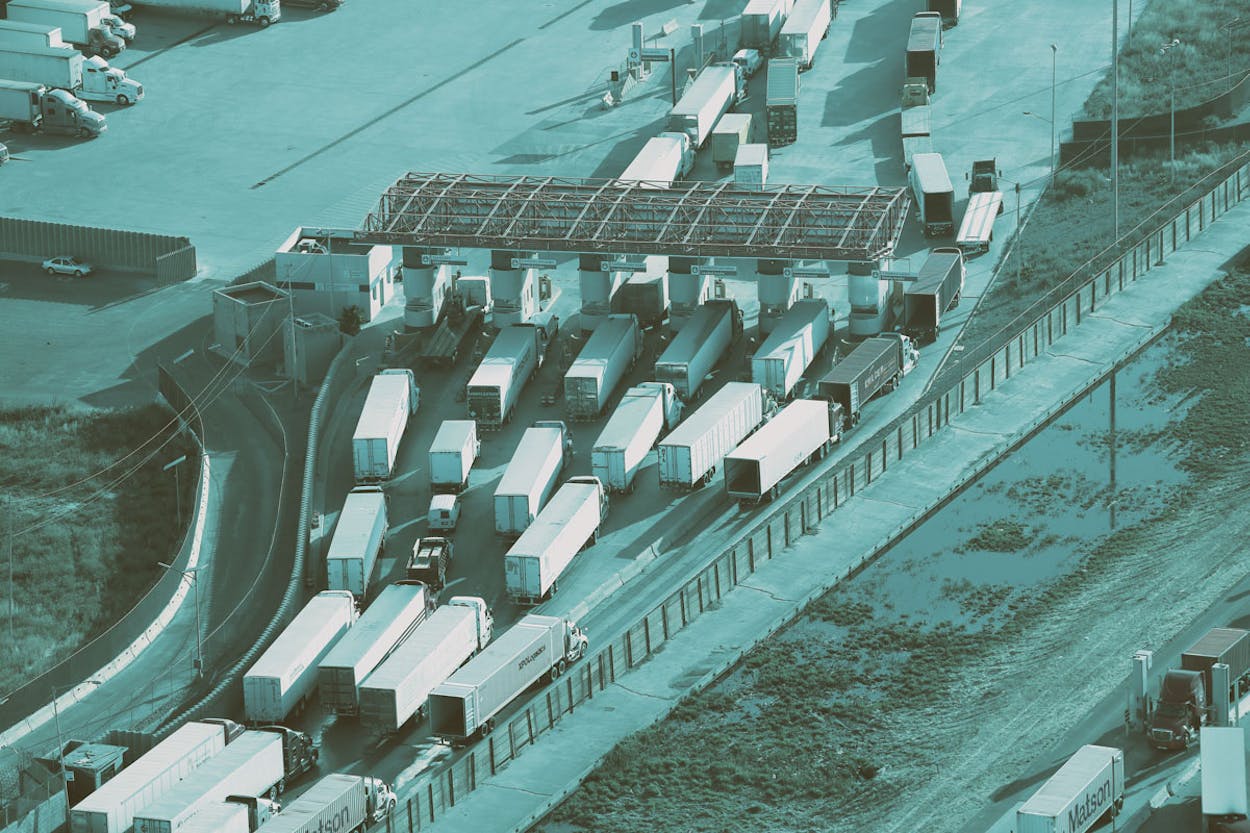In his 1992 independent run for president, Dallas businessman Ross Perot warned of a “giant sucking sound” from South of the border, taking jobs from Americans as part of the North American Free Trade Agreement. Today, we hear arguments from both the left and right about why we would be better off without NAFTA. These range from what some call the “theft” of American jobs to concerns over the rising income inequality between the rich and the poor. Still, President Trump has made many involved in trade nervous with his threats to withdraw NAFTA if he does not like the outcome of negotiations to update the agreement.
But whether you are a banker in Dallas or a farmer in Lubbock, make no mistake—withdrawing from NAFTA would be devastating for Texas.
Not only is Mexico the Lone Star State’s largest trading partner, but more than 380,000 jobs in Texas directly depend on trade with Mexico.
These jobs are in industries ranging from manufacturing to agriculture to electronics. Many are found in the more than 125,000 small and medium-sized Texas businesses that shipped products and provided services to Mexico and Canada last year.
Thanks to NAFTA, Texas’s export economy skyrocketed. We currently run a trade surplus with both Mexico and Canada, and more than 75 percent of U.S.-Mexico land trade crosses the border somewhere in Texas. Last year, Texas alone sent more than $125 billion in goods alone to our North American trading partners.
Unfortunately, these benefits get lost during the renegotiation process in favor of political posturing and calls for the U.S. to walk away from NAFTA. The president has spoken about negotiating two separate bilateral treaties, but it is not clear that either Mexico or Canada would be interested, and with elections in both the U.S. and Mexico in 2018, it is unlikely any such deal could be struck in the next twelve to eighteen months.
If the U.S. walks away from NAFTA, it gets more expensive to buy and sell goods and everyone is worse off. For example, if the agreement is terminated, then under current WTO tariff rates, rates for goods coming into the U.S. from Canada and Mexico would increase to an average 3.5 percent, while the rates for U.S. exports to Canada would rise to an average 4.2 percent and for goods going to Mexico, they would increase an average 7.5 percent.
What happens when tariffs hit multinational assembly lines, some of which cross the border a half a dozen times? Do businesses maintain the status quo and pay the tariff at each stage of the process? Do businesses move the entire production to the United States and pay Canada and Mexico’s higher tariffs for a final product? Or do they relocate to a country with cheaper labor—perhaps outside North America altogether—and pay the United States’ lower import rate?
Thousands of executives across the state are asking themselves these questions as a NAFTA withdrawal becomes increasingly possible.
The politics of fear that has stemmed from free trade is currently being given preferential treatment over jobs and economic growth. To combat this, the Texas–Mexico Trade Coalition and its members are raising awareness about the positive, demonstrable benefits of NAFTA, making sure elected officials and policy makers know that the Texas without NAFTA is a less prosperous, less competitive place to do business.
Justin Yancy is President of the Texas Business Leadership Council. Opinions expressed by Texas Monthly guest columnists are their own.






